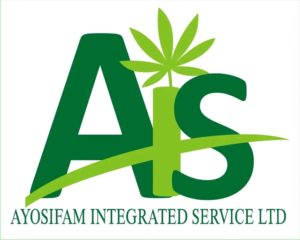Venturing into cassava processing can be a lucrative endeavor, but establishing a strong foundation through cassava farming offers significant advantages. Here’s a breakdown of why cultivating your cassava crop before launching a processing factory is highly beneficial:
1. Ensuring a Stable and Predictable Raw Material Supply:
Control over Quality:
By farming your cassava, you have direct control over the quality of the raw material. This ensures that the cassava roots meet the specific requirements of your processing facility, leading to higher-quality end products.
You can select cassava varieties known for their high starch content, disease resistance, and suitability for your intended processing methods.
Supply Chain Security:
Relying solely on external suppliers can be risky, as fluctuations in market prices and availability can disrupt your production.
Having your own farm provides a consistent and reliable source of cassava, minimizing the risk of supply shortages and production delays.
Cost Management:
Cultivating your own cassava can potentially reduce raw material costs, as you eliminate the need for intermediaries and negotiate favorable prices.
This cost-effectiveness can significantly improve the profitability of your processing operation.
2. Optimizing Processing Efficiency:
Understanding the Crop:
Farming cassava provides invaluable firsthand experience with the crop’s growth cycle, harvesting techniques, and post-harvest handling.
This knowledge is essential for optimizing processing operations and minimizing waste.
Tailored Production:
You can synchronize your farming practices with the demands of your processing factory, ensuring a continuous flow of raw materials at the optimal maturity stage.
This coordination maximizes processing efficiency and reduces storage requirements.
Waste Reduction:
controlling the farm, you can implement best practices for harvesting, and handling the cassava, this will decrease the amount of damaged product that enters your processing facility.
3. Enhancing Business Sustainability:
Vertical Integration:
Integrating farming and processing operations creates a vertically integrated business model, which can enhance profitability and resilience.
This model allows you to capture value at multiple stages of the cassava value chain.
Community Development:
Establishing your own farm can create employment opportunities and contribute to the economic development of local communities.
This can foster positive relationships and enhance your company’s social responsibility.
Long term planning:
Farming your own cassava allows for better long term planning, by allowing the factory owner to know the quantity and quality of product that will be available.
In conclusion:
While sourcing cassava from external suppliers is an option, establishing your own cassava farm before launching a processing factory offers significant advantages. It provides control over raw material quality, ensures a stable supply, optimizes processing efficiency, and enhances business sustainability. By embracing this integrated approach, you can lay a solid foundation for a successful and profitable cassava processing venture




